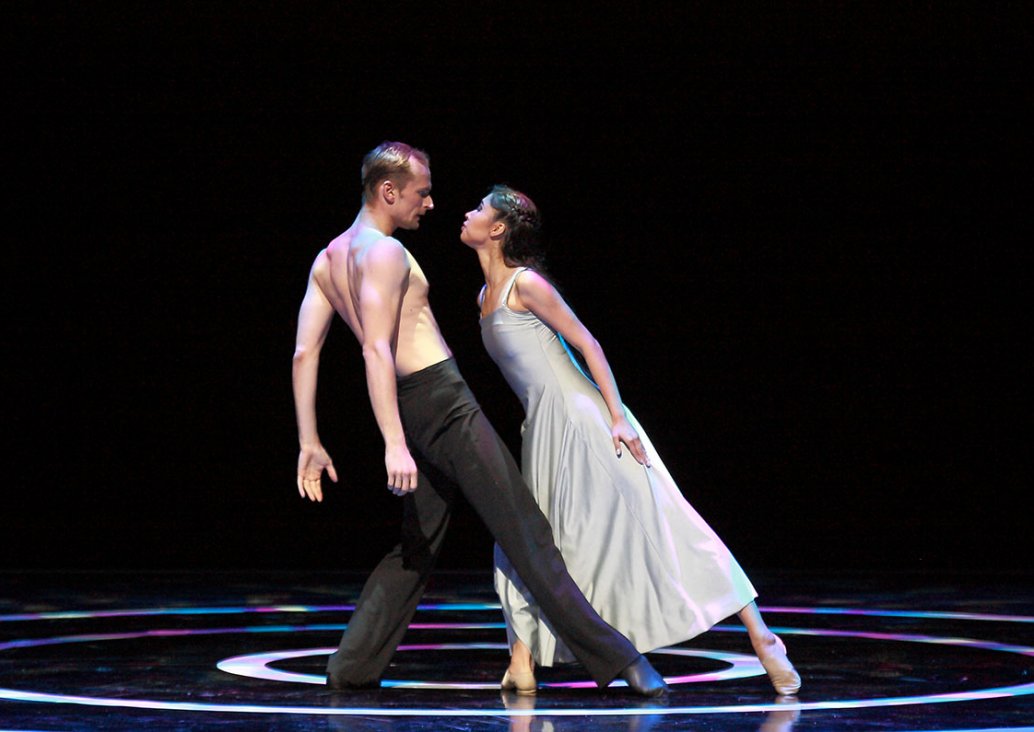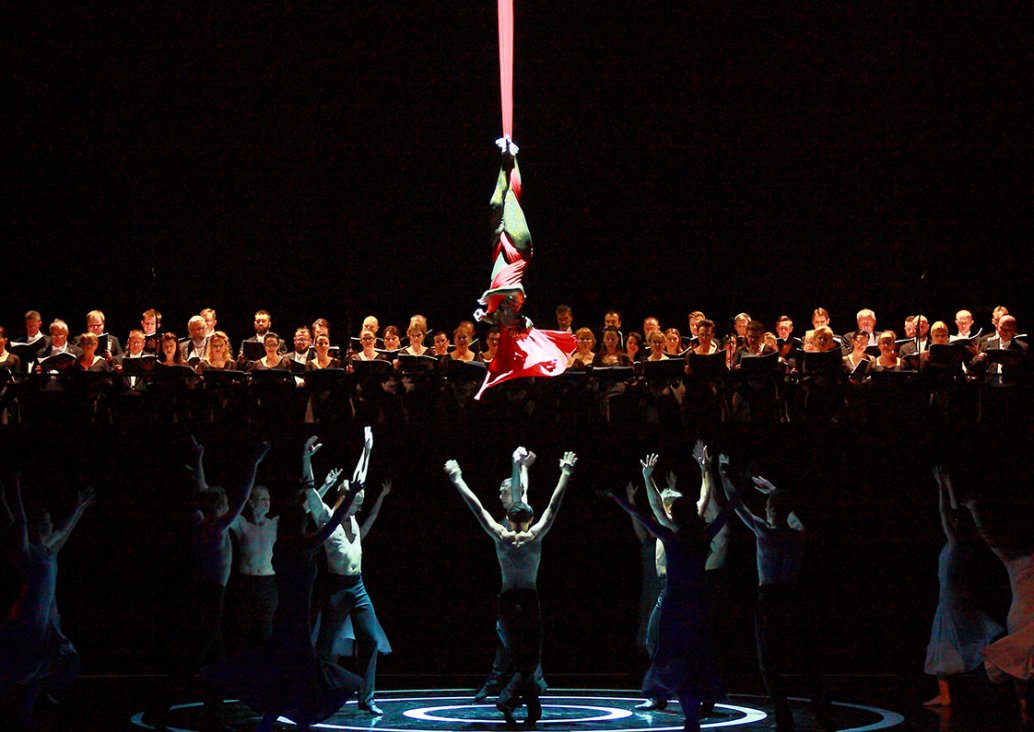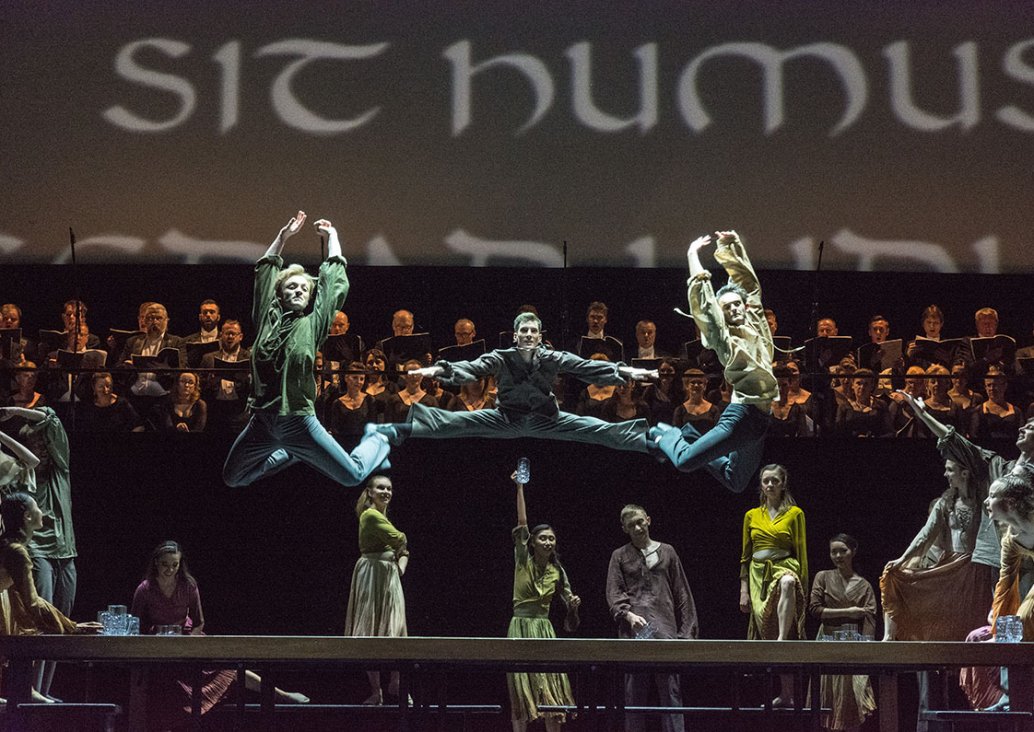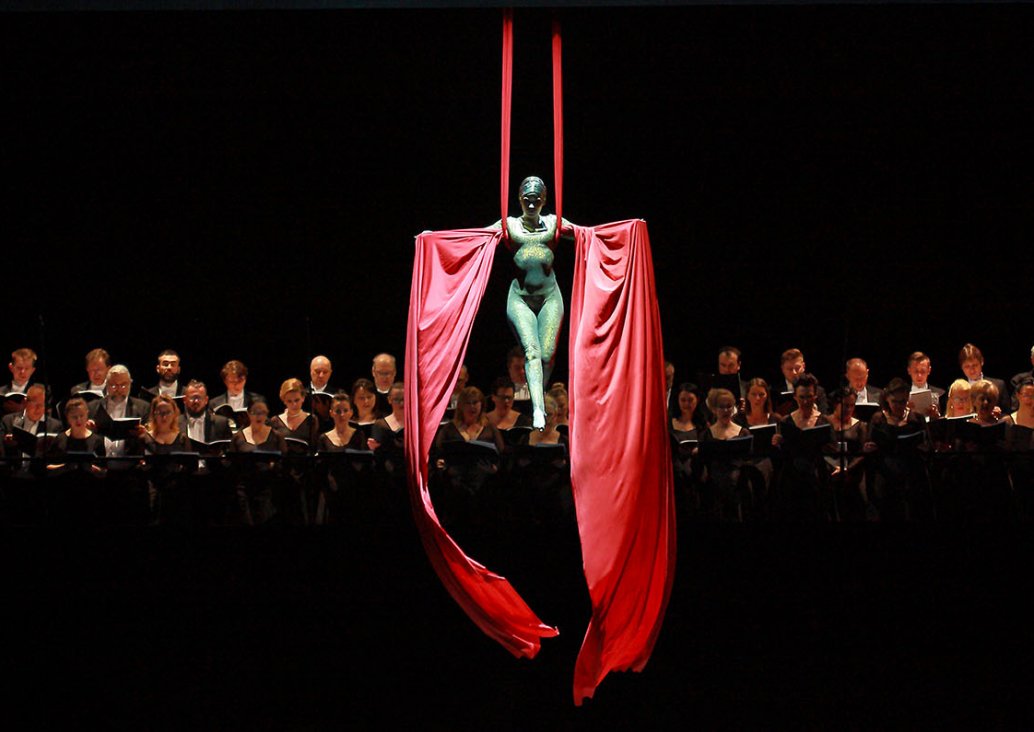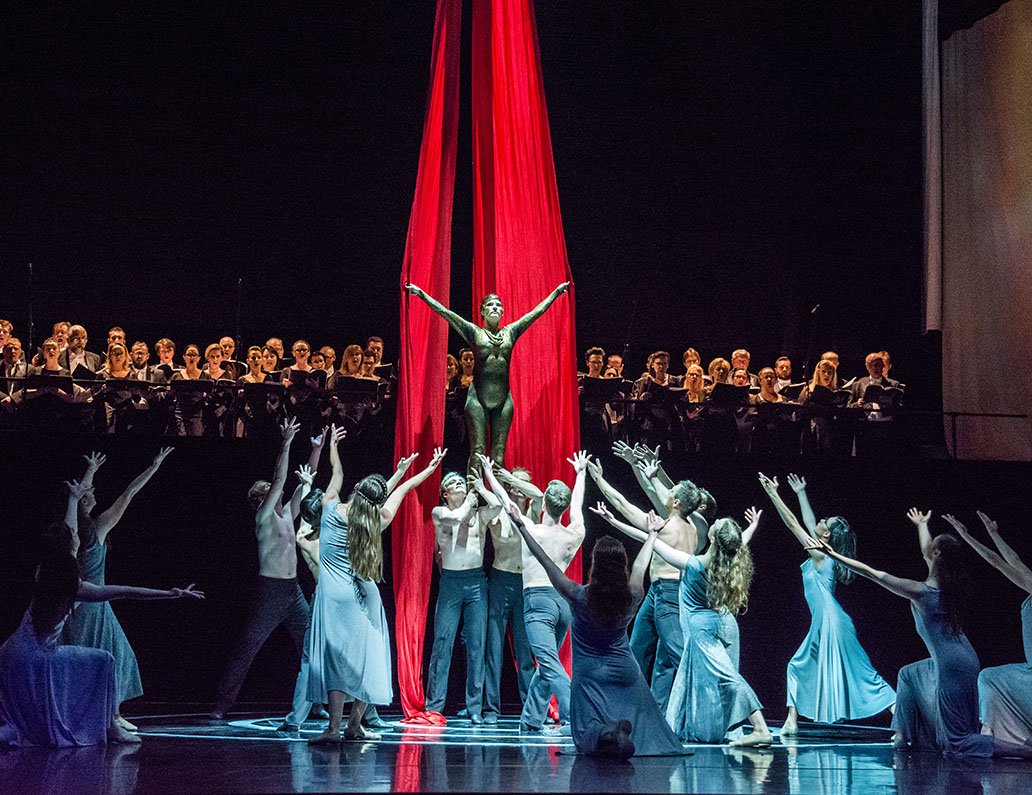
Opera
Carmina Burana
Carl Orff
Tomasz Tokarczyk
1
hours
10
minutes
details
information
duration
1
hours
10
minutes
composer
Carl Orff
World premiere
Frankfurt am Main, 8 June 1937
Polish premiere
Łódź 1963
premiere at the Krakow Opera
27 April 2018
language
In the original version, with Polish subtitels
More information
Secular songs; lyrics after the medieval manuscript from the abbey of Benediktbeuern (Bavaria) Prologue and final reprise by the composer
description
“Carmina Burana”, called by some people a stage cantata and by others – an oratorio, is based on secular mediaeval songs, discovered in 1803 in the Bavarian monastery Benediktbeuern. Carl Orff selected from this vast collection of texts, created by vagrants, students and wandering clerics, 24 songs and composed them in some sort of a libretto. The first part comprises songs celebrating nature and the awakening spring, the second part is a praise of Bacchus and the third one tells of pleasures of love. The motto of the entire piece is apotheosis of life and affirmation of the world. Only approval to order and structure of the macrocosm will allow a human to maintain purity of soul and live according to nature.
Poster

poster by
Marta Krupowska
producers and cast
producers
Premiere pruducers
Music Director | Tomasz Tokarczyk
Stage Producer | Bogusław Nowak, Emil Wesołowski
Choreographer | Emil Wesołowski
Set and Costume Designer | Bożena Pędziwiatr
Choir Master | Jacek Mentel
Children’s Choir Masters | Beata Kluza and Marek Kluza
Lighting designer, projections | Dariusz Pawelec
Director’s assistant | Bożena Walczyk-Skrzypczak
Choreographer’s assistants | Elena Korpusenko, Victor Korpusenko
Choir master’s assistant | Joanna Wójtowicz
Stage managers | Agnieszka Sztencel, Justyna Jarocka-Lejzak
Music Director | Tomasz Tokarczyk
Stage Producer | Bogusław Nowak, Emil Wesołowski
Choreographer | Emil Wesołowski
Set and Costume Designer | Bożena Pędziwiatr
Choir Master | Jacek Mentel
Children’s Choir Masters | Beata Kluza and Marek Kluza
Lighting designer, projections | Dariusz Pawelec
Director’s assistant | Bożena Walczyk-Skrzypczak
Choreographer’s assistants | Elena Korpusenko, Victor Korpusenko
Choir master’s assistant | Joanna Wójtowicz
Stage managers | Agnieszka Sztencel, Justyna Jarocka-Lejzak
cast
SOLISTS
SOPRANO | JOANNA FRESZEL
TENOR | ADAM SOBIERAJSKI
BARITONE | SZYMON KOMASA
ACROBAT | MAGDALENA SZTENCEL
DANCERS
WOMAN | MALIKA TOKKOZHINA (5:00 PM), MIZUKI KUROSAWA (7:30 PM)
MAN | YAUHENI RAUKUTS (5:00 PM), FILIPPO PENCO (7:30 PM)
GIRLS | SARA AMOROSO, MARIANNA MORFIN, SOFIA MANCA
BOYS | JAVIER ARÉS CABEZA, MATHEUS TERTULIANO, ANDREA ZULIAN
SWAN | FILIPPO PENCO (5:00 PM), MATHEUS TERTULIANO (7:30 PM)
KRAKOW OPERA BALLET, ORCHESTRA, CHOIR AND CHILDREN'S CHOIR
CONDUCTOR | PIOTR SUŁKOWSKI
SOPRANO | JOANNA FRESZEL
TENOR | ADAM SOBIERAJSKI
BARITONE | SZYMON KOMASA
ACROBAT | MAGDALENA SZTENCEL
DANCERS
WOMAN | MALIKA TOKKOZHINA (5:00 PM), MIZUKI KUROSAWA (7:30 PM)
MAN | YAUHENI RAUKUTS (5:00 PM), FILIPPO PENCO (7:30 PM)
GIRLS | SARA AMOROSO, MARIANNA MORFIN, SOFIA MANCA
BOYS | JAVIER ARÉS CABEZA, MATHEUS TERTULIANO, ANDREA ZULIAN
SWAN | FILIPPO PENCO (5:00 PM), MATHEUS TERTULIANO (7:30 PM)
KRAKOW OPERA BALLET, ORCHESTRA, CHOIR AND CHILDREN'S CHOIR
CONDUCTOR | PIOTR SUŁKOWSKI
ticket
200 zł
170 zł
150 zł
120 zł
100 zł
90 zł
synopsis
PROLOGUE: elaborate choral hymn to Fortune – the fickle goddess of human fate.
PART I (“Veris laeta facies” – “On Spring”): songs extolling the beauty of nature awakening into life in spring, when Phoebus the sun god chases away winter and Flora adorns the whole world with fresh verdure, followed by songs in praise of May, the month that kindles love in human hearts. In joking words, girls ask a vagrant pedlar to give them some rouge to colour their cheeks and attract boys.
PART II (“In taverna” – “In the Tavern”): fanciful drinking songs, one in praise of temporal life; another discussing the feelings of... a swan, which – while being stewed in a saucepan – complains about the inconstancy of earthly fortune; and the third one parodying liturgical singing. In conclusion, all the merrymakers join in a song in honour of Bacchus.
PART III (“Amor volat undique” – “On Love”): discusses the delights and sorrows of love and also illustrates the various stages of the love game. In the final movement, the choir sings a song in honour of Venus. However, as it is not Venus but Fortune that really rules the world, the whole work is concluded by a reprise of the opening hymn in her praise.
Józef Kański, “Przewodnik operowy”
reviews
upcoming performances of this genre
/
